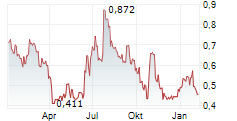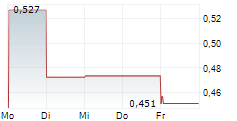Mendus AB ("Mendus" publ; IMMU.ST), a biopharmaceutical company focused on immunotherapies targeting tumor recurrence, announces positive 2-year follow-up data from the ALISON Phase 1 trial. The data confirms safety, tolerability and feasibility of Mendus' lead product vididencel as an active immunotherapy in high-risk ovarian cancer and provides the basis for novel combination treatments in this indication.
- Out of 17 patients treated, 8 patients are still alive and have passed 2-year follow-up
- Improved tumor-directed immune responses following vididencel treatment are associated with improved survival
- No product-related serious side effects, confirming strong safety profile
- Positive data positions vididencel for novel combination therapies in ovarian cancer
The ALISON Phase 1 trial carried out by the University Medical Center Groningen, The Netherlands (UMCG) explores the potential of vididencel to induce clinically relevant immune responses in 17 women diagnosed with late-stage, high-grade serous ovarian carcinoma. Mendus and UMCG had earlier reported positive data at ASCO 2025, demonstrating improved tumor-directed immune responses (VIR) in 12 out of 17 patients (71%) following vididencel treatment, which were associated with improved progression-free survival. At a median follow-up of 26 months, 8 patients were still alive and have now passed 2-year follow-up. Stable disease was observed in 1 of 5 patients (20%) without VIR, whereas 5 of 12 patients (42%) with VIR still had stable disease, including 2 patients beyond 3,5 years of follow-up. No product-related serious side effects were observed, positioning vididencel as a safe immunotherapy that can be combined with other therapeutic modalities.
"The ALISON long-term follow-up data reveal an interesting correlation between tumor-directed immune responses stimulated by vididencel and progression-free survival in ovarian cancer," said Mendus Chief Medical and Scientific Officer Tariq Mughal. "Immunotherapy in ovarian cancer has struggled because the disease is associated with multiple immune escape pathways, providing rationale for novel combination treatments to overcome the immune evasion mechanisms by the tumor. The ALISON trial positions vididencel as an active immunotherapy that can be safely combined with other therapeutic modalities such as PARP inhibitors, immune checkpoint inhibitors and T cell engagers to establish potential life-saving treatments for this fatal disease."
Mendus and UMCG have engaged in a multi-year collaboration to study novel immunotherapies for gynecological cancers. The ALISON Phase 1 trial studies safety and feasibility of vididencel in high-grade serous ovarian cancer. Mendus and UMCG have also developed improved methods for the expansion of tumor-infiltrating lymphocytes to treat ovarian and endometrial cancers. As part of its updated clinical strategy, Mendus has communicated that continued clinical development of the gynecological cancer program will be subject to partnering.
For more information, please contact:
Erik Manting
Chief Executive Officer
E-mail: ir@mendus.com
About Mendus AB (publ)
Mendus is dedicated to changing the course of cancer treatment by addressing tumor recurrence and improving long-term survival for cancer patients, while preserving health and quality of life. We leverage our understanding of dendritic cell biology to develop an advanced clinical pipeline of immunotherapies that combine clinical efficacy with a benign safety profile. Based in Sweden and The Netherlands, Mendus is publicly traded on the Nasdaq Stockholm under the ticker IMMU.ST. https://www.mendus.com/


